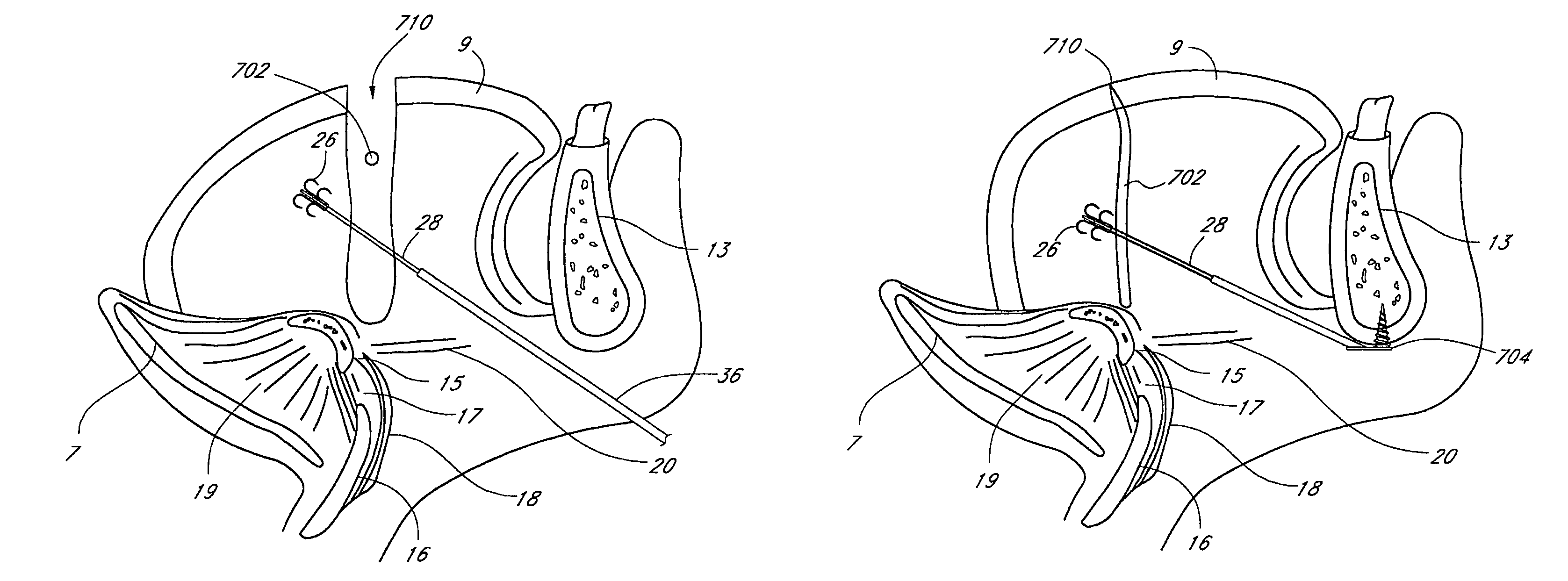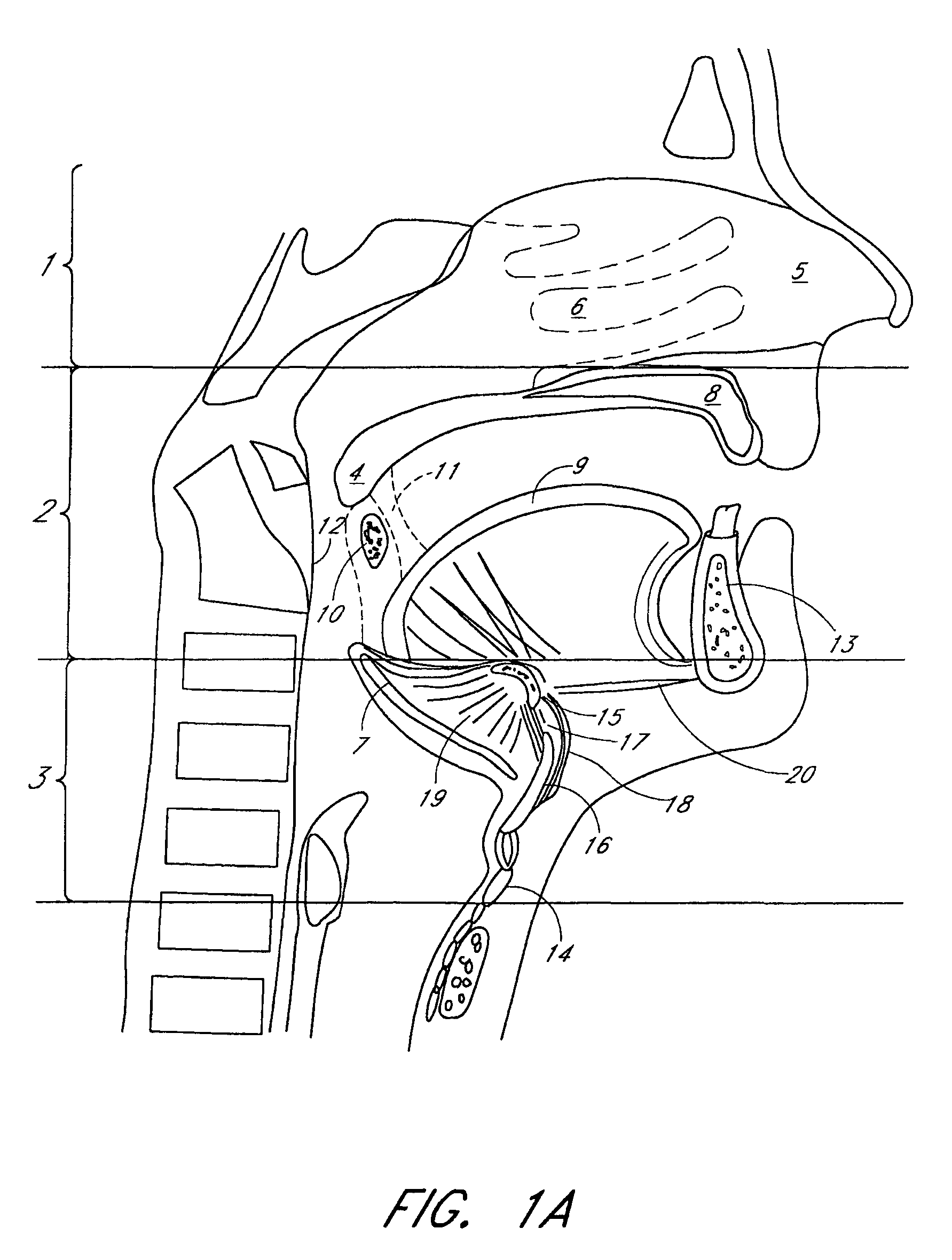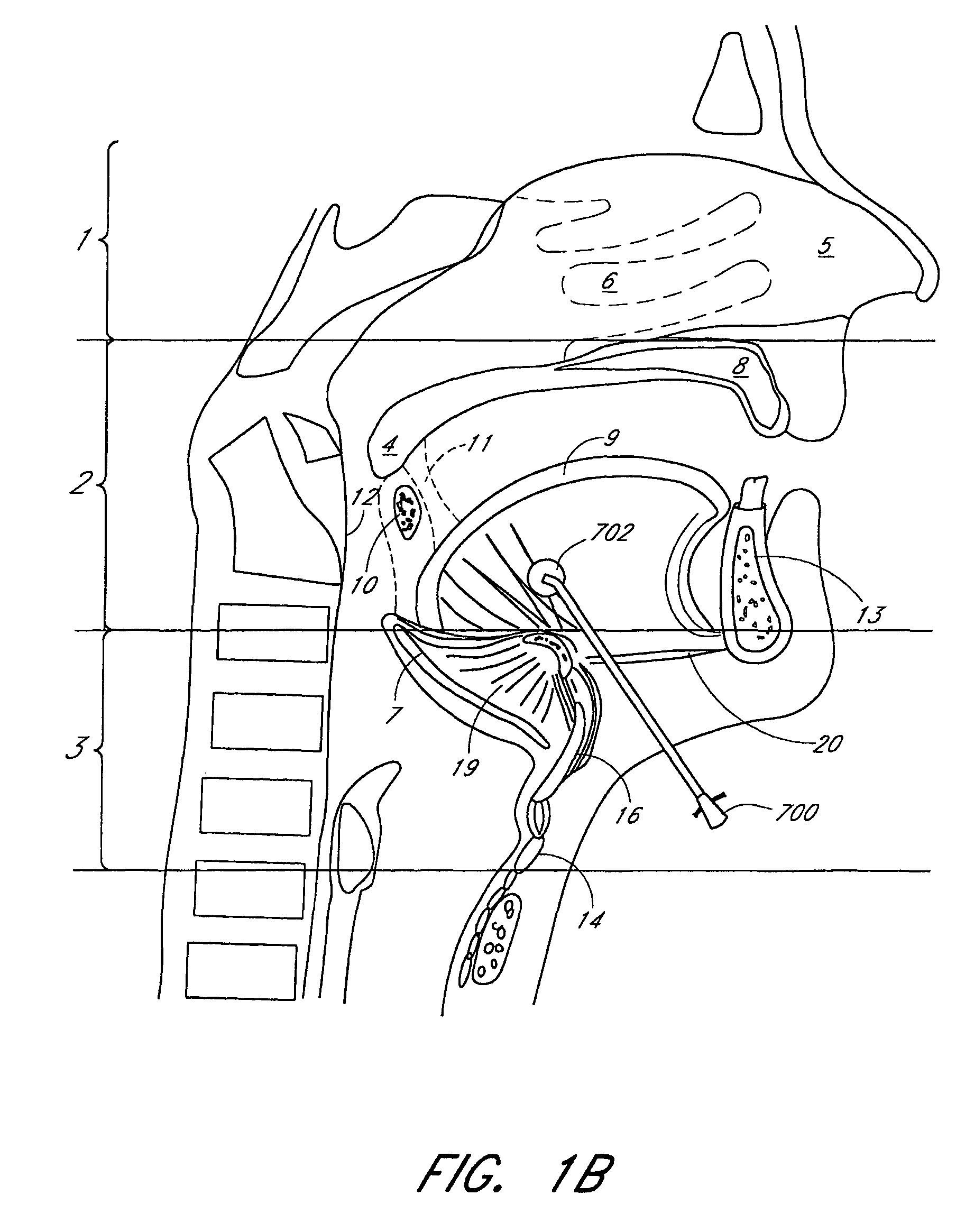Glossoplasty using tissue anchor glossopexy with volumetric tongue reduction
a glossopexy and tissue anchor technology, applied in the field of glossopexy using tissue anchor glossopexy with volumetric tongue reduction, can solve the problems of excessive daytime sleepiness, increased inspiratory effort to overcome airway resistance, and risk of airway obstruction during sleep
- Summary
- Abstract
- Description
- Claims
- Application Information
AI Technical Summary
Benefits of technology
Problems solved by technology
Method used
Image
Examples
Embodiment Construction
[0078]FIG. 1A is a sagittal view of the structures that comprise the pharyngeal airway and may be involved in obstructive sleep apnea. The pharynx is divided, from superior to inferior, into the nasopharynx 1, the oropharynx 2 and the hypopharynx 3. The nasopharynx 1 is a less common source of obstruction in OSA. The nasopharynx is the portion of the pharynx above the soft palate 4. In the nasopharynx, a deviated nasal septum 5 or enlarged nasal turbinates 6 may occasionally contribute to upper airway resistance or blockage. Only rarely, a nasal mass, such as a polyp, cyst or tumor may be a source of obstruction.
[0079]The oropharynx 2 comprises structures from the soft palate 4 to the upper border of the epiglottis 7 and includes the hard palate 8, tongue 9, tonsils 10, palatoglossal arch 11, the posterior pharyngeal wall 12 and the mandible 13. The mandible typically has a bone thickness of about 5 mm to about 10 mm anteriorly with similar thicknesses later...
PUM
 Login to View More
Login to View More Abstract
Description
Claims
Application Information
 Login to View More
Login to View More - R&D
- Intellectual Property
- Life Sciences
- Materials
- Tech Scout
- Unparalleled Data Quality
- Higher Quality Content
- 60% Fewer Hallucinations
Browse by: Latest US Patents, China's latest patents, Technical Efficacy Thesaurus, Application Domain, Technology Topic, Popular Technical Reports.
© 2025 PatSnap. All rights reserved.Legal|Privacy policy|Modern Slavery Act Transparency Statement|Sitemap|About US| Contact US: help@patsnap.com



